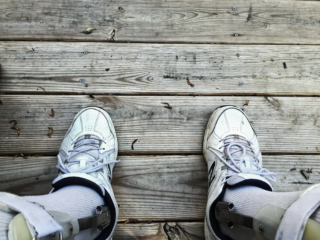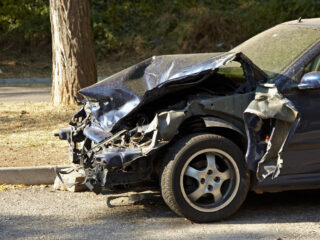This Ottawa occupiers’ liability case was a bifurcated trial with the issue of liability heard first. While the analysis is largely fact driven, Cooper provides a helpful analysis of occupiers’ liability law and a thorough review of the judge’s findings of fact.
While visiting the home of her sister and brother-in-law in Ottawa during the summer, a Florida woman tripped and fell over sandals her sister had left on the back stoop, causing her to fall and break her ankle. The plaintiff brought a claim against her brother-in-law under the Occupiers’ Liability Act, alleging he had not taken reasonable care in the circumstances to ensure she was reasonably safe at his home.
The Court found the defendant met the standard of care and did not cause the plaintiff’s injury, dismissing the action and granting judgment to the defendant.
The standard of care
The Court affirmed that s. 3(1), “imposes on occupiers an affirmative duty to make the premises reasonably safe for persons entering them by taking reasonable care to protect such persons from foreseeable harm.” [2] However, said duty is not absolute: “they are not insurers liable for any damages suffered by persons entering their premises. Their responsibility is limited to taking, “such care as in all the circumstances of the case is reasonable” [3]
Analysis
The plaintiff was found to be a regular visitor over the years and familiar with the house and back stoop, although she had not been aware of her sister’s habit of leaving her sandals on the stoop.
The likelihood of harm, the gravity of harm and the nature of the practice
The Court considered both common sense and the many years the plaintiff’s sister had left her sandals on the back stoop without any incident. Tripping over sandals left on a back stoop was reasonably foreseeable, but the likelihood of the harm low: a broken ankle was a “relatively modest” injury.
The Court found that it is common for people to slip off their shoes or sandals on their back stoops when entering their house in the summer in Ottawa. While there was some risk in doing so, there was nothing unusual or inherently dangerous about this practice and the existence of some risk is “an ordinary part of life”.
The standard of care did not require the defendant to request his wife not leave her sandals on the stoop in front of the back door
A reasonable person—an ordinarily prudent person—would not tell their spouse where to put their sandals in their home. This was not a case of a parent supervising a child or an employer supervising an employee, a municipality responsible for public space or even a commercial property owner inviting the public into their space. The standard of care does not require one spouse to police the conduct of the other [4].
The standard of care did not require the defendant to warn the plaintiff to watch out for shoes or sandals commonly left on the landing
The Court found that only the “most anxious person” would warn visitors to be on guard that his spouse might leave sandals on the stoop, going beyond the standard of an ordinarily prudent person in these circumstances.
This was not a case where the defendant was aware of a permanent or ongoing structural or environmental danger. This plaintiff would “set the standard of care too high” [5]. An occupier does not need to warn a visitor about the possibility that his spouse might leave her sandals on the back stoop.
The standard of care did not require the defendant to install a shoe rack on the landing before the plaintiff’s fall
While the couple temporarily put in a shoe rack after receiving notice from the plaintiff, the sister continued to leave her shoes on the back stoop. The Court said given what happened to the plaintiff, it was no surprise they had put in this rack, but it was “hindsight”, and the rack was ultimately removed to make room for a railing they had installed.
A reasonable person would not have installed a shoe rack on the landing to mitigate the chance of a trip—only an overly cautious person would have done so.
The standard of care did not require the defendant to widen the stoop or leave room for shoes to be placed somewhere not directly in front of the door
Common sense must be used by courts when applying the statute. There was no evidence that the width of the stoop was deficient or dangerous and a reasonable person would not have widened it simply because it was common for their spouse to leave sandals there in the summer.
While the Court noted that another occupier causing the injury did not relieve this defendant of his duty, the Act does not impose vicarious liability on a co-occupant for the acts or omissions of another co-occupant.
The Court found that the defendant met the standard of care.
Causation
The Court touched briefly on causation, noting that in order for a defendant to be found liable, they must be found to be both negligent and to have caused the plaintiff’s injury. The defendant did not cause this injury.
The injury would likely have happened just the same if the defendant had installed a shoe rack. The only possible exception on causation would have been to warn the plaintiff about his wife’s habit of leaving sandals on the back landing, but the standard of care did not require him to have warned her in the first place.
Contributory negligence
Had the defendant been found liable, the plaintiff would have been 25 percent contributorily negligent. The Court held that a reasonably prudent person looks down when stepping down from a higher elevation onto a step and the plaintiff admitted that she had not and that she would have seen the sandals had she looked down. The plaintiff here did not take sufficient care.
[2] Waldick v. Malcolm (1989), 1991 CanLII 8347 (ON CA), aff’d 1991 CanLII 71 (SCC), [1991] 2 S.C.R. 456 at 20. [3] Waldick at 21. [3] Cooper v. Beaudoin, 2023 ONSC 6543 at 28. [4] Cooper at 31 and 32. [5] Cooper at 34.










